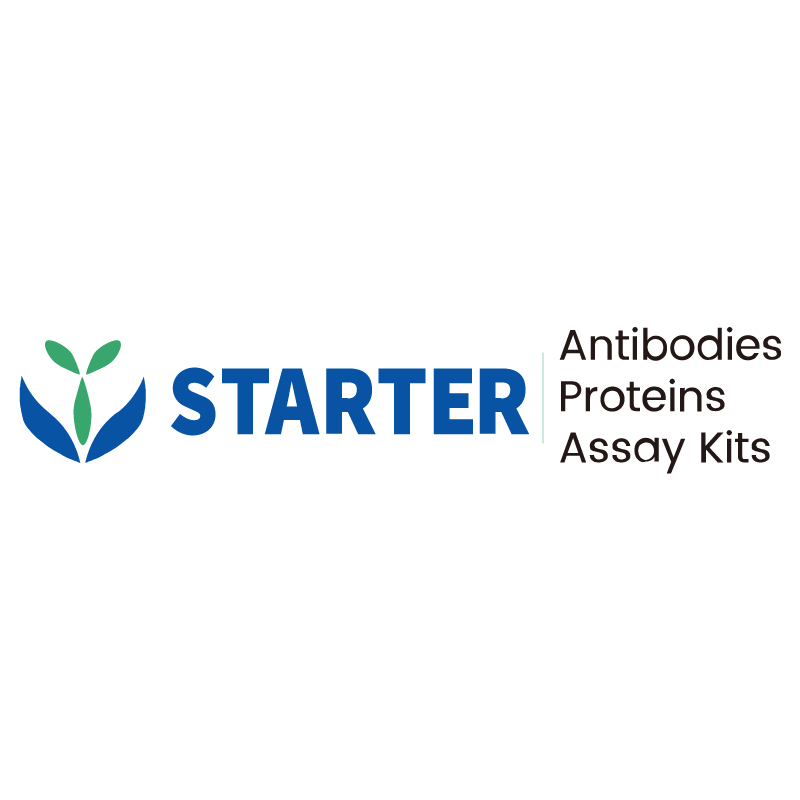2μg(R: reducing conditions)
Product Details
Product Details
Product Specification
| Species | Human |
| Synonyms | Cadherin family member 2, Desmocollin-3, Desmosomal glycoprotein II, Desmosomal glycoprotein III, CDHF2, DSC3 |
| Accession | Q02487 |
| Amino Acid Sequence | Protein sequence (Q02487, Arg136-Lys694, with C-His tag) RWAPIPCSMLENSLGPFPLFLQQVQSDTAQNYTIYYSIRGPGVDQEPRNLFYVERDTGNLYCTRPVDREQYESFEIIAFATTPDGYTPELPLPLIIKIEDENDNYPIFTEETYTFTIFENCRVGTTVGQVCATDKDEPDTMHTRLKYSIIGQVPPSPTLFSMHPTTGVITTTSSQLDRELIDKYQLKIKVQDMDGQYFGLQTTSTCIINIDDVNDHLPTFTRTSYVTSVEENTVDVEILRVTVEDKDLVNTANWRANYTILKGNENGNFKIVTDAKTNEGVLCVVKPLNYEEKQQMILQIGVVNEAPFSREASPRSAMSTATVTVNVEDQDEGPECNPPIQTVRMKENAEVGTTSNGYKAYDPETRSSSGIRYKKLTDPTGWVTIDENTGSIKVFRSLDREAETIKNGIYNITVLASDQGGRTCTGTLGIILQDVNDNSPFIPKKTVIICKPTMSSAEIVAVDPDEPIHGPPFDFSLESSTSEVQRMWRLKAINDTAARLSYQNDPPFGSYVVPITVRDRLGMSSVTSLDVTLCDCITENDCTHRVDPRIGGGGVQLGK |
| Expression System | HEK293 |
| Molecular Weight | Predicted MW: 64 kDa Observed MW: 90 kDa |
| Purity | >95% by SDS-PAGE |
| Endotoxin | <0.1EU/μg |
| Conjugation | Unconjugated |
| Tag | with C-His tag |
| Physical Appearance | Lyophilized Powder |
| Storage Buffer | Lyophilized from a 0.2 μm filtered solution of 0.2M PBS, pH7.4. |
| Reconstitution | Reconstitute no more than 1 mg/mL according to the size in deionized water after rapid centrifugation. |
| Stability & Storage | 12 months from date of receipt, -20 to -70 °C as supplied. |
Background
Desmocollin-2 is a protein that in humans is encoded by the DSC2 gene. Desmocollin-2 is a cadherin-type protein that functions to link adjacent cells together in specialized regions known as desmosomes. Desmocollin-2 is widely expressed, and is the only desmocollin isoform expressed in cardiac muscle, where it localizes to intercalated discs. Mutations in DSC2 have been causally linked to arrhythmogenic right ventricular cardiomyopathy. Desmosomal cadherins, including the desmocollin family members and desmogleins, are found at desmosome cell-cell junctions and are required for cell adhesion and desmosome formation via interactions with their extracellular cadherin regions. Desmocollins are integral components to desmosomes and studies have shown that in addition to tensile strength, desmocollins also function as molecular sensors and facilitators of signal transduction.
Picture
Picture
SDS-PAGE


